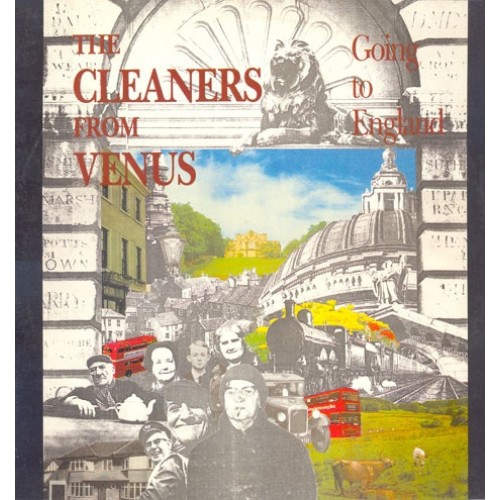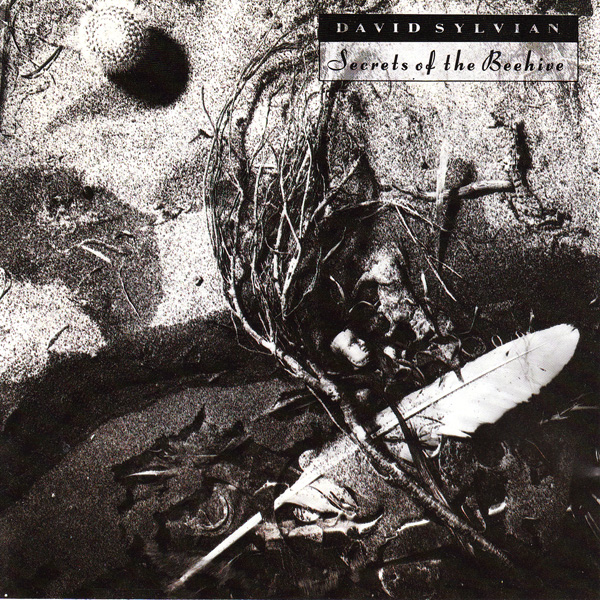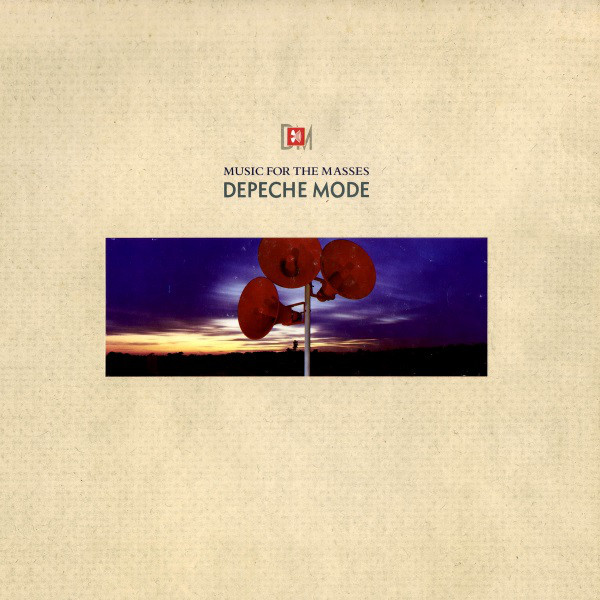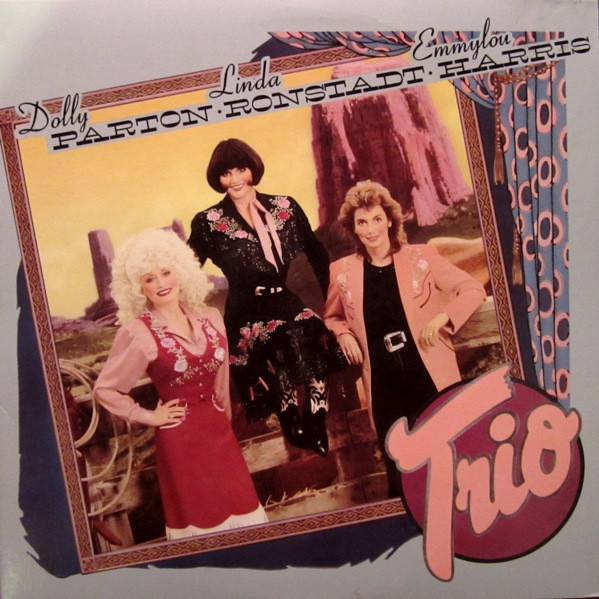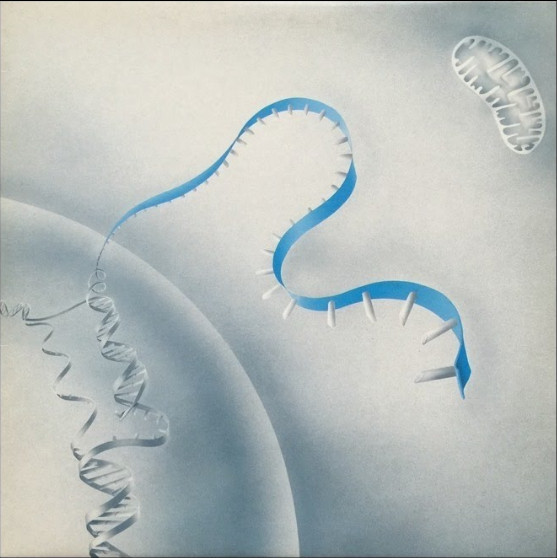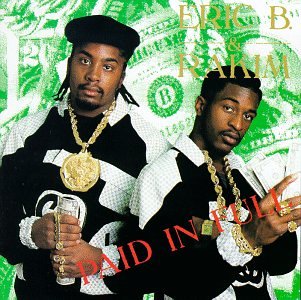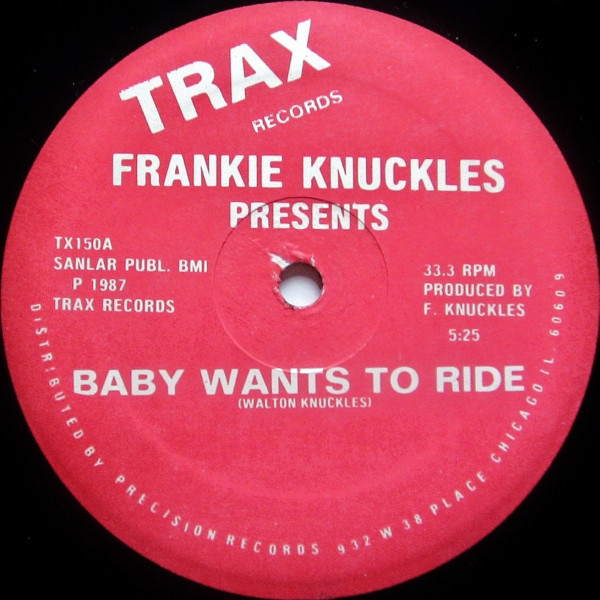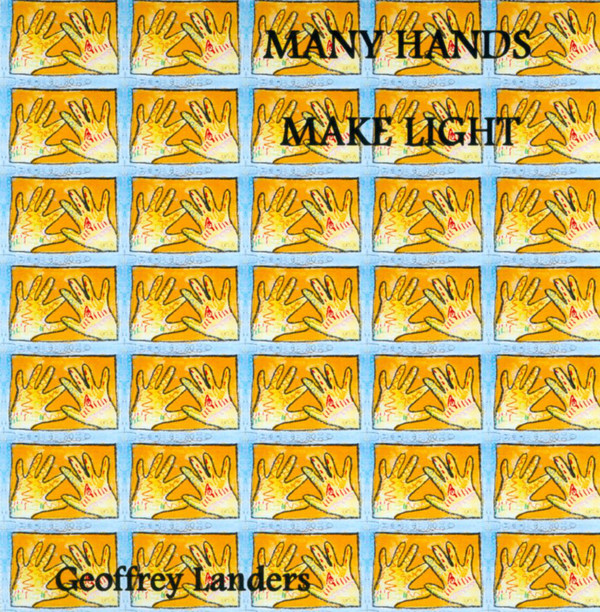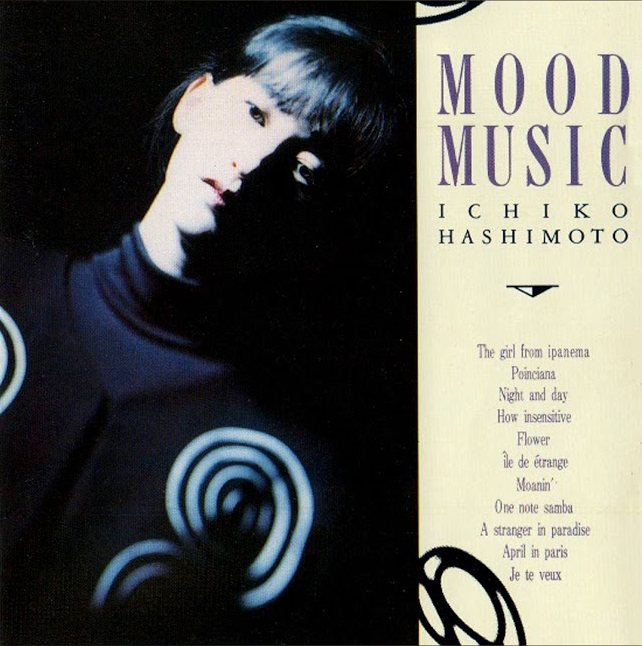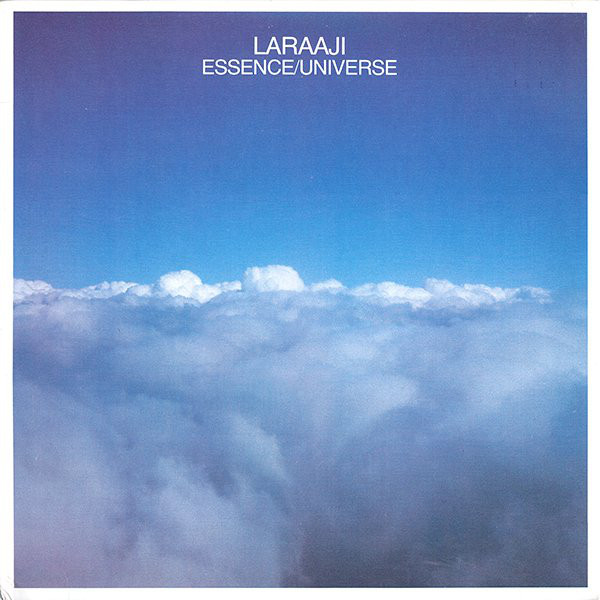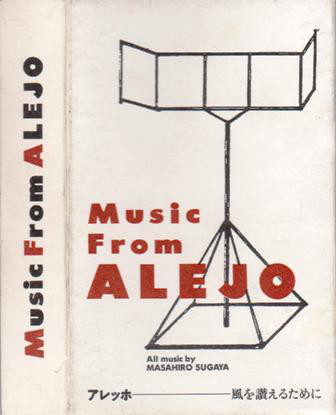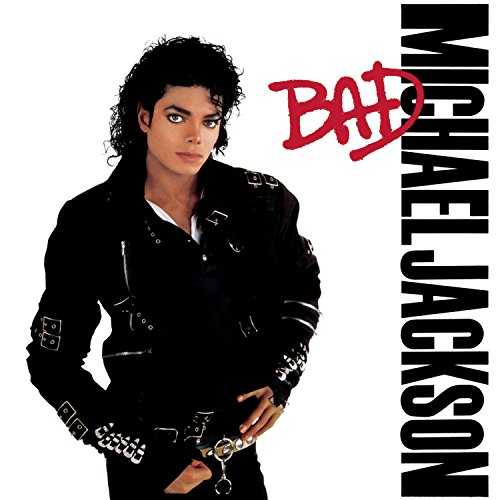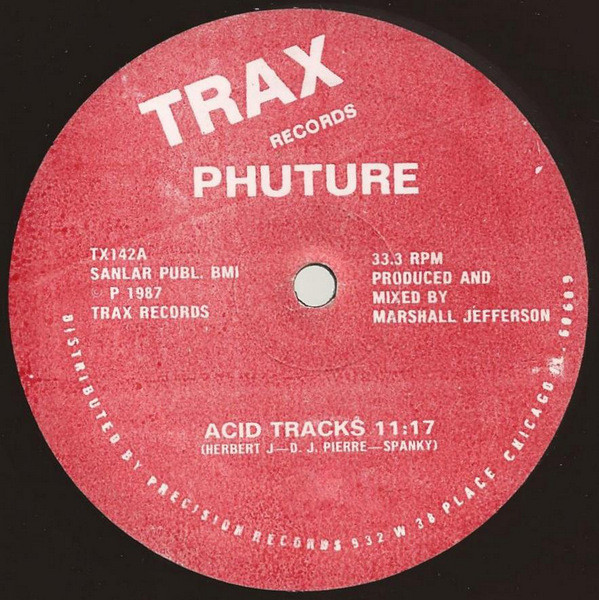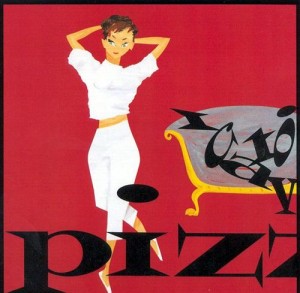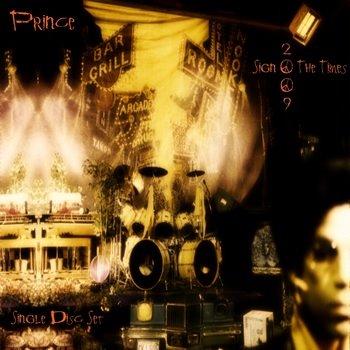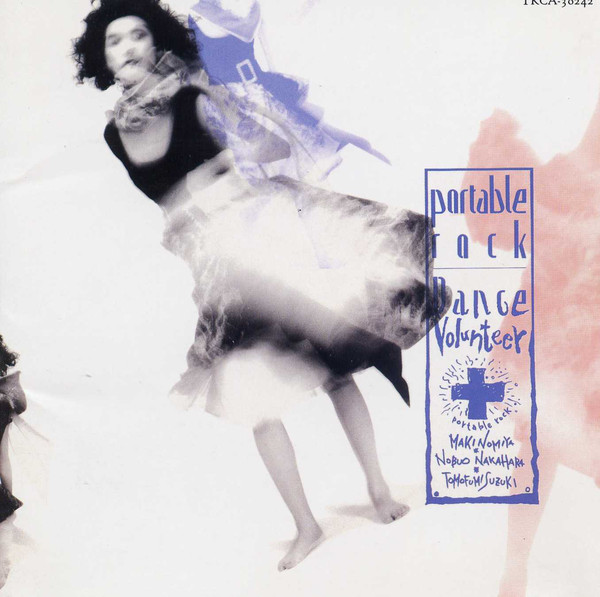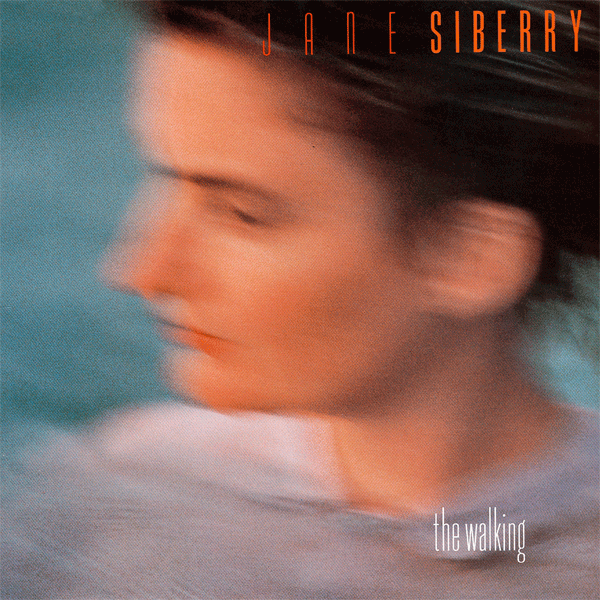 I’m about to revert to a mode of musical description that I strongly dislike, which is: comparing female musicians with other singular female musicians, specifically female musicians who often get lazily categorized as “weird.” I’m sorry, I don’t like it either! But Jane Siberry is slippery to describe. I’ll do my best anyway.
The Walking is the fourth full-length from Canadian musician Jane Siberry. It’s the follow-up to No Borders Here, which was a highly ambitious record–and yet The Walking feels even moreso, both incredibly intricate and enormous, rapidly oscillating between macro and microcosmic. While Siberry found critical acclaim in Canada, her records–as I understand it–mostly flew under the radar in the US, in ways that feel both legible and surprising. There are elements of these songs which feel like they could have been commercially marketable to the art pop crowd, in spite of everything: there’s a theatrical spaciousness that’s difficult not to compare to Kate Bush or Laurie Spiegel, and a navy blue moodiness with cavernous percussion that suggests Talk Talk. Ultimately it seems that it was the songs’ length that kneecapped their commercial viability, at least for radio play, which is unfortunate given how easy it is to picture the jangly and ecstatic “Ingrid And The Footman” rolling through the ending credits of a John Hughes movie. The Walking functions as a series of eight mini-suites, only one of which is shorter than five minutes, and most of which comprise a series of movements, or, as Siberry refers to them, “emotional clearings”–which, if we are to take the title of The Walking at face value, starts to make sense as an extended metaphor.
And still, in spite of all of the tones and colors that she wrings out in less than an hour, she speaks in interviews of having “more to say than [she] could fit into a song,” and of having to abridge tracks that stretched over 30 minutes down to nine. Perhaps it’s this condensation which, in spite of how expansive these songs are, produces the feeling of rolling a many-faceted prism in your hands as it catches the light. It’s rare to hear a musician who so effectively combines poetic lyricism and razor-sharp, stunningly beautiful musicianship. Joanna Newsom’s Ys and its mode of mythical, longform, large-scale storytelling immediately come to mind. Not much else does.
For me, the most emotionally pointed track on the record is “The Lobby,” which, lyrically, paints in large, dreamlike gestures: it provides the flint-spark of pathos, gorgeous musical bones, and a lot of empty space. The rest is up to the listener, left to drape their own emotions and projections all over the structures that Siberry has built for us. I don’t know what this song is actually about, but I don’t need to, as I’ve already stuffed it full of my own stories. Listening to it provides the odd sensation of long fingers rooting around in your psyche, prodding deftly at the parts that hurt the most. There’s catharsis here too, though. If pain is a movement in Jane’s suite, then so is joy, and so is self-realization.
I’m about to revert to a mode of musical description that I strongly dislike, which is: comparing female musicians with other singular female musicians, specifically female musicians who often get lazily categorized as “weird.” I’m sorry, I don’t like it either! But Jane Siberry is slippery to describe. I’ll do my best anyway.
The Walking is the fourth full-length from Canadian musician Jane Siberry. It’s the follow-up to No Borders Here, which was a highly ambitious record–and yet The Walking feels even moreso, both incredibly intricate and enormous, rapidly oscillating between macro and microcosmic. While Siberry found critical acclaim in Canada, her records–as I understand it–mostly flew under the radar in the US, in ways that feel both legible and surprising. There are elements of these songs which feel like they could have been commercially marketable to the art pop crowd, in spite of everything: there’s a theatrical spaciousness that’s difficult not to compare to Kate Bush or Laurie Spiegel, and a navy blue moodiness with cavernous percussion that suggests Talk Talk. Ultimately it seems that it was the songs’ length that kneecapped their commercial viability, at least for radio play, which is unfortunate given how easy it is to picture the jangly and ecstatic “Ingrid And The Footman” rolling through the ending credits of a John Hughes movie. The Walking functions as a series of eight mini-suites, only one of which is shorter than five minutes, and most of which comprise a series of movements, or, as Siberry refers to them, “emotional clearings”–which, if we are to take the title of The Walking at face value, starts to make sense as an extended metaphor.
And still, in spite of all of the tones and colors that she wrings out in less than an hour, she speaks in interviews of having “more to say than [she] could fit into a song,” and of having to abridge tracks that stretched over 30 minutes down to nine. Perhaps it’s this condensation which, in spite of how expansive these songs are, produces the feeling of rolling a many-faceted prism in your hands as it catches the light. It’s rare to hear a musician who so effectively combines poetic lyricism and razor-sharp, stunningly beautiful musicianship. Joanna Newsom’s Ys and its mode of mythical, longform, large-scale storytelling immediately come to mind. Not much else does.
For me, the most emotionally pointed track on the record is “The Lobby,” which, lyrically, paints in large, dreamlike gestures: it provides the flint-spark of pathos, gorgeous musical bones, and a lot of empty space. The rest is up to the listener, left to drape their own emotions and projections all over the structures that Siberry has built for us. I don’t know what this song is actually about, but I don’t need to, as I’ve already stuffed it full of my own stories. Listening to it provides the odd sensation of long fingers rooting around in your psyche, prodding deftly at the parts that hurt the most. There’s catharsis here too, though. If pain is a movement in Jane’s suite, then so is joy, and so is self-realization.
Jane Siberry – The Walking, 1987
 I’m about to revert to a mode of musical description that I strongly dislike, which is: comparing female musicians with other singular female musicians, specifically female musicians who often get lazily categorized as “weird.” I’m sorry, I don’t like it either! But Jane Siberry is slippery to describe. I’ll do my best anyway.
The Walking is the fourth full-length from Canadian musician Jane Siberry. It’s the follow-up to No Borders Here, which was a highly ambitious record–and yet The Walking feels even moreso, both incredibly intricate and enormous, rapidly oscillating between macro and microcosmic. While Siberry found critical acclaim in Canada, her records–as I understand it–mostly flew under the radar in the US, in ways that feel both legible and surprising. There are elements of these songs which feel like they could have been commercially marketable to the art pop crowd, in spite of everything: there’s a theatrical spaciousness that’s difficult not to compare to Kate Bush or Laurie Spiegel, and a navy blue moodiness with cavernous percussion that suggests Talk Talk. Ultimately it seems that it was the songs’ length that kneecapped their commercial viability, at least for radio play, which is unfortunate given how easy it is to picture the jangly and ecstatic “Ingrid And The Footman” rolling through the ending credits of a John Hughes movie. The Walking functions as a series of eight mini-suites, only one of which is shorter than five minutes, and most of which comprise a series of movements, or, as Siberry refers to them, “emotional clearings”–which, if we are to take the title of The Walking at face value, starts to make sense as an extended metaphor.
And still, in spite of all of the tones and colors that she wrings out in less than an hour, she speaks in interviews of having “more to say than [she] could fit into a song,” and of having to abridge tracks that stretched over 30 minutes down to nine. Perhaps it’s this condensation which, in spite of how expansive these songs are, produces the feeling of rolling a many-faceted prism in your hands as it catches the light. It’s rare to hear a musician who so effectively combines poetic lyricism and razor-sharp, stunningly beautiful musicianship. Joanna Newsom’s Ys and its mode of mythical, longform, large-scale storytelling immediately come to mind. Not much else does.
For me, the most emotionally pointed track on the record is “The Lobby,” which, lyrically, paints in large, dreamlike gestures: it provides the flint-spark of pathos, gorgeous musical bones, and a lot of empty space. The rest is up to the listener, left to drape their own emotions and projections all over the structures that Siberry has built for us. I don’t know what this song is actually about, but I don’t need to, as I’ve already stuffed it full of my own stories. Listening to it provides the odd sensation of long fingers rooting around in your psyche, prodding deftly at the parts that hurt the most. There’s catharsis here too, though. If pain is a movement in Jane’s suite, then so is joy, and so is self-realization.
I’m about to revert to a mode of musical description that I strongly dislike, which is: comparing female musicians with other singular female musicians, specifically female musicians who often get lazily categorized as “weird.” I’m sorry, I don’t like it either! But Jane Siberry is slippery to describe. I’ll do my best anyway.
The Walking is the fourth full-length from Canadian musician Jane Siberry. It’s the follow-up to No Borders Here, which was a highly ambitious record–and yet The Walking feels even moreso, both incredibly intricate and enormous, rapidly oscillating between macro and microcosmic. While Siberry found critical acclaim in Canada, her records–as I understand it–mostly flew under the radar in the US, in ways that feel both legible and surprising. There are elements of these songs which feel like they could have been commercially marketable to the art pop crowd, in spite of everything: there’s a theatrical spaciousness that’s difficult not to compare to Kate Bush or Laurie Spiegel, and a navy blue moodiness with cavernous percussion that suggests Talk Talk. Ultimately it seems that it was the songs’ length that kneecapped their commercial viability, at least for radio play, which is unfortunate given how easy it is to picture the jangly and ecstatic “Ingrid And The Footman” rolling through the ending credits of a John Hughes movie. The Walking functions as a series of eight mini-suites, only one of which is shorter than five minutes, and most of which comprise a series of movements, or, as Siberry refers to them, “emotional clearings”–which, if we are to take the title of The Walking at face value, starts to make sense as an extended metaphor.
And still, in spite of all of the tones and colors that she wrings out in less than an hour, she speaks in interviews of having “more to say than [she] could fit into a song,” and of having to abridge tracks that stretched over 30 minutes down to nine. Perhaps it’s this condensation which, in spite of how expansive these songs are, produces the feeling of rolling a many-faceted prism in your hands as it catches the light. It’s rare to hear a musician who so effectively combines poetic lyricism and razor-sharp, stunningly beautiful musicianship. Joanna Newsom’s Ys and its mode of mythical, longform, large-scale storytelling immediately come to mind. Not much else does.
For me, the most emotionally pointed track on the record is “The Lobby,” which, lyrically, paints in large, dreamlike gestures: it provides the flint-spark of pathos, gorgeous musical bones, and a lot of empty space. The rest is up to the listener, left to drape their own emotions and projections all over the structures that Siberry has built for us. I don’t know what this song is actually about, but I don’t need to, as I’ve already stuffed it full of my own stories. Listening to it provides the odd sensation of long fingers rooting around in your psyche, prodding deftly at the parts that hurt the most. There’s catharsis here too, though. If pain is a movement in Jane’s suite, then so is joy, and so is self-realization.
 One of my favorites, so much so that I’m confused why I haven’t posted this already. If you’re unfamiliar, Isabelle Antena is a French pop and jazz musician and composer, who began making music with her band Antena (whose highly influential
One of my favorites, so much so that I’m confused why I haven’t posted this already. If you’re unfamiliar, Isabelle Antena is a French pop and jazz musician and composer, who began making music with her band Antena (whose highly influential 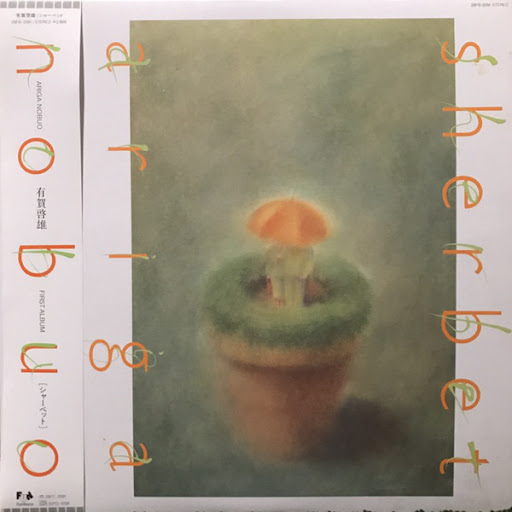 Delighted to share a record here after a long hiatus, and delighted that it’s this one. (Hello, hi! Thank you for your patience, and for being here, and for the sweet emails that I haven’t responded to because I don’t know how to email anymore, sorry!)
SHERBET is one of the more apt album titles that comes to mind–it feels like a candy-toned icy sugar cloud. (Also realizing as I type this that my boyfriend was correct when he said a few years back that sherbet is due for a resurgence in interest–it does seem like the most proto-vaporwave dessert, no? Suddenly consumed with a strong desire to bust out my ice cream machine.)
Nobuo Ariga only released three records under his own name, none of which seemed to pick up much traction as it took me a long to track this one down, but he was prolific as a writer and session musician on a
Delighted to share a record here after a long hiatus, and delighted that it’s this one. (Hello, hi! Thank you for your patience, and for being here, and for the sweet emails that I haven’t responded to because I don’t know how to email anymore, sorry!)
SHERBET is one of the more apt album titles that comes to mind–it feels like a candy-toned icy sugar cloud. (Also realizing as I type this that my boyfriend was correct when he said a few years back that sherbet is due for a resurgence in interest–it does seem like the most proto-vaporwave dessert, no? Suddenly consumed with a strong desire to bust out my ice cream machine.)
Nobuo Ariga only released three records under his own name, none of which seemed to pick up much traction as it took me a long to track this one down, but he was prolific as a writer and session musician on a  This endless, drizzly winter has put me in a major early choral music rut, and it’s been so good that I almost don’t want the sun to come out. If you’ve never stomped around slushy Brooklyn subway stations in too many layers listening to this stuff in headphones, I’d highly recommend it–it’s a very easy way to lend some potent saintly gravitas to whatever you’re doing and thinking about, however trivial. Along the way, I’ve decided that Spanish Counter-Reformation composer and priest Tomás Luis de Victoria’s requiem, written in 1605, is one of my favorites.
I will say that because this was written right along the outer edges of what’s defined as “early music,” it shows a lot of early baroque tendencies, which is to say that it’s lacking the stark, alien-sounding movements of really early polyphony, like
This endless, drizzly winter has put me in a major early choral music rut, and it’s been so good that I almost don’t want the sun to come out. If you’ve never stomped around slushy Brooklyn subway stations in too many layers listening to this stuff in headphones, I’d highly recommend it–it’s a very easy way to lend some potent saintly gravitas to whatever you’re doing and thinking about, however trivial. Along the way, I’ve decided that Spanish Counter-Reformation composer and priest Tomás Luis de Victoria’s requiem, written in 1605, is one of my favorites.
I will say that because this was written right along the outer edges of what’s defined as “early music,” it shows a lot of early baroque tendencies, which is to say that it’s lacking the stark, alien-sounding movements of really early polyphony, like 

